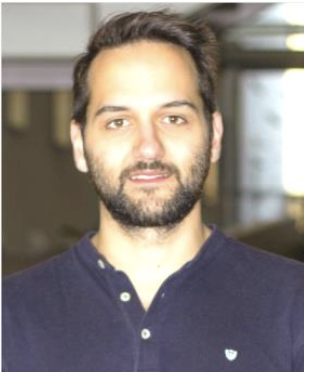Immune systems are a complex collection of specialised cells differentiated by phenotype and function.
Understanding cellular heterogeneity is fundamental to gaining deep biological insights but immune diversity and dynamic plasticity makes it difficult to do this.
Webinars
Episode 1 : FlowJo™ high dimension analytics is your game changer (24mins)
Click here to see more
Overview of Episode 1:
Multiparameter flow cytometry data analysis done the customary way: bi-dimensional XY plots that gate on a gate on a gate etc followed by a practical demonstration of a more powerful and much easier way to simultaneously analyse multiple parameters using FlowJo™ plugins.
[Duration: 11 mins + 13mins]
Details:
Frank and Serena demonstrate how you too could gain deeper biological insights by leveraging an easy-to-apply approach to higher dimension data analysis. Frank starts by highlighting common challenges and limitations of conventional 2D sequential gating – the common approach to analysing flow data [11mins]. Serena then presents a simple 4 step FlowJo™ workflow to perform a quality assessment and control (QC) of your data, collectively visualize all the cells simultaneously identify the presence of any novel sub-populations present within your study sample and finally conduct a detailed characterization of those specific subsets of interest to you [13mins].
Using Tregs as a representative study population, Serena demonstrates how FlowJo™ goes beyond conventional approaches that limit analysis to classic core phenotyping markers of the population: CD3+ CD4+ CD25+ CD127-. Instead, supplementary markers within a larger panel reveal 10 unique and discrete sub-clusters of Tregs. Serena shows how each of these 10 sub-populations can then be interrogated to reveal unique phenotypes enabling further focussed characterisation experiments.
This powerful analytical approach is not limited to investigating Tregs but can be easily applied to study your own cellular populations of interest.

Frank Heuts, PhD - Flow Cytometry Applications Consultant - Northern Europe - [email protected]
Frank holds a PhD in immunology and is the specialist for high end flow cytometry applications in the UK, Ireland, Benelux and Nordics where he provides extensive technical, panel design and data analysis support on high end flow cytometry analysers and sorters. Prior to joining BD, Frank was a Senior Scientist at biotech Plasticell Ltd focussing on stem cell differentiation. During his academic career Frank used high parameter flow cytometry and in vivo imaging to investigate the role of a various of human and mouse immune cells in transplantation and autoimmune diseases.

Serena Di Cecilia, PhD - Senior European Application Scientist, FlowJo, Informatics - [email protected]
Serena holds a PhD in Molecular Oncology and a postdoc in translational medicine. With significant experience in multi-parameter flow cytometry-based biomarker discovery, analysis of haematological and cancer diseases, and Next Generation Sequencing Serena‘s expertise now centers on supporting higher dimensional flow data analytics. Prior to joining BD and the FlowJo team, Serena was a Flow Cytometry data analyst in a Contract Research Organization focusing on clinical trials data analysis for big Pharma companies.
Episode 2 : Single cell multiomics driving deeper biological insights (27mins)
Click here to see more
Overview of Episode 2:
Here we present tools to obtain an extensive characterization of single cells [particularly sensitive cell types like Neutrophils] through a gentle multimodal approach featuring the BD Rhapsody™ system that enables the simultaneous analysis of protein and mRNA profiles.
[Duration: 3mins + 13 mins + 11mins]
Details:
Carrie starts by addressing the common challenges of analysing specific immune populations by flow cytometry that is associated with cellular heterogenic complexity [3mins].
Hasi then presents an overview of several novel methods to drive new biomarker discovery through single cell multiomics (scM) technologies that enables a very thorough characterization of immune cells [13mins].
Carrie continues with a brief review of the typical workflow (from generation of scM sequencing data through to analysis with SeqGeq™ software) illustrating the simplicity of this approach. This presentation concludes with a review of a recent publication (from the journal Cell) that illustrates the key benefits of scM and its potential accelerate biomarker discovery [11mins].

Carrie Maynard - European Single-Cell Applications Scientist
Carrie focused on working together with our biotech, pharmaceutical and translational lab key accounts to get their single-cell assays up and running. This included both flow cytometry and single cell multiomics. Prior to joining BD, Carrie was a scientist developing immunotherapies for cancer in a successful start up biotech Tusk Therapeutics which was acquired by Roche in 2018. In her academic career, Carrie focused on using imaging, flow cytometry and single cell mRNA sequencing to map the immune response to therapy in cancer.

Hasi Patel - Senior Single Cell Solution Architect - [email protected]
Hasi has extensive business experience in client facing roles in academia and pharma covering various sequencing and single cell applications and supports customers across UKI, Nordics and Benelux establish total single cell solution workflows. Prior to joining BD, Hasi held a European commercial role in a private company providing high performance computing services to scientists, enabling optimized and secure clinical bioinformatics data processing.
Episode 3 : Bridge the gap from multiomics to higher parameter flow (28mins)
Click here to see more
Overview of Episode 3:
Here we present the application of single cell multiomics (scM) technologies [BD Rhapsody™ system and SeqGeq™ analytics platform] to examine Innate Lymphoid cells (ILCs) through an unbiased exploratory approach resulting in the identification of novel ILC subset identification markers.
[Duration: 8mins + 20mins]
Details:
Vadir introduces the primary ILC subpopulations (ILC1, 2 and 3) and presents an experimental workflow to further refine these subsets. Complementary datasets (protein and mRNA expression) of ILCs were collected and analysed with SeqGeq™ thereby revealing discrete subsets within the parent population. Novel markers on ILC subsets were identified and these were incorporated into the design of higher parameter flow cytometry phenotyping panels. Alongside high dimension analytics with FlowJo™ plugins (see Episode 1) this approach enabled much deeper investigations of ILC subsets [8mins].
In the second part of this episode, Edyta presents a step-by-step practical guide of multiomics data analysis with SeqGeq™ through a logical user-friendly workflow that has a strong similarity to flow cytometry data analysis with FlowJo™ [20mins]. This approach is not limited to ILCs but applies to the study of all immune populations.

Edyta Kowalczyk - Bioinformatics Support Engineer - [email protected]
Edyta is trained in Python/R programming and NGS data analysis and has significant experience in large‐scale, high throughput data and scRNAseq omics data analysis methods. Much of her expertise comes from having previously worked on the development of bioinformatics solutions in the area of precision medicine and cancer immunotherapy. Edyta is currently responsible for analysis of scRNA sequencing data and supporting customers over Europe in bioinformatics related queries.

Vadir Lopez-Salmeron - Single Cell MultiOmix Application Support - [email protected]
Vadir Holds a PhD in Molecular Biology and a Postdoc in developmental biology and is currently the Team Leader of Multi-Omics support at BD in Europe. Bringing a wealth of expertise in Single Cell genomics, Vadir support partnerships with customers that require a smooth transition towards the application of novel technologies that enable the analysis of thousands of cellular parameters at a single cell level.
Episode 4 : Go beyond the comfort zone - master higher parameter flow (39mins)
Click here to see more
Overview of Episode 4:
High Parameter Flow Cytometry Panel design demonstrated through the development of a 21-parameter immune phenotyping panel for the analysis of Innate Lymphoid Cells including a focus on optimizing data quality by mitigating fluorescence spread.
[Duration: 18mins + 21mins]
Details:
Vesna starts with a brief introduction of Innate Lymphoid Cell [as addressed in the ILC whitepaper; see Resources below] prior to explaining the fundamental considerations of high parameter panel design. This includes the biology of the samples to be analysed, the impact of spread/spill-over on the data collected and the benefit of using a Total Spread Matrix (TSM). [18mins]
In the second part of this webinar Jens illustrates the design of a 21-marker panel (that includes 14 novel markers identified with the BD Rhapsody™ multiomics system) for the deep characterization of the ILC1 subset. The presentation includes an explanation and practical application of the Total Spread Matrix Too (v1) leveraging known information on the biology of cells under investigation to help construct a deep phenotyping panel [21mins]. The latest Total Spread Matrix Visualization Tool (v2) can be downloaded from the Resources section.

Vesna Melkebeek - European Scientific & Training Support Specialist - [email protected]
Vesna holds a PhD in Veterinary Immunology and used flow cytometry, cell sorting and imaging through her academic career to study the impact of different vaccination strategies and adjuvants on the intestinal mucosal immune system in animals. As a highly experienced member of the European Scientific and Training Support team, Vesna now focuses primarily on high parameter panel design and supports researchers with diverse needs ranging from instrument setup through to data analysis. In addition to this, Vesna also provides multicolor and cell sorting user training.

Jens Fleischer - Flow Cytometry Application Consultant - [email protected]
Jens holds a PhD in Immunology and Cell Biology. Based at our European Center for Single Cell Solutions in Heidelberg, Jens specialises in our high-end instrumentation portfolio including including consultation on the design of bespoke instrument configurations to meet specific user and experimental requirements. The support he provides extends to higher parameter panel design on standard and custom-made systems alongside high dimensional data analysis with FACSDiva™ and FlowJo™. Additionally, his expertise extends to include sorting and consultation on associated biosafety requirements.
Episode 5 : Visualizing higher dimension data with FlowJo™ Plugins (25mins)
Click here to see more
Overview of Episode 5:
The user-friendly informatics platform FlowJo™ offers over 30 plugins* to interrogate flow cytometry data in different and insightful ways. This episode provides an overview and practical demonstration of some of the favourites that include PeacoQC, UMAP, Phenograph, Cluster Explorer and Violin Box.
[Duration: 7mins + 18mins]
Details:
Serena starts by highlighting the challenge of analysing high parameter flow data and then takes us through a a six-part workflow that can help address this. The workflow includes an overview of Data QC, Concatenation, Dimensionality reduction, Clustering, Phenotying and Comparisons with reference to the PeacoQC, UMAP, Phenograph, Cluster Explorer and Violin Box plugins [7mins].
In the second part of this webinar, Ioannis provides a practical demonstration of the FlowJo™ workflow, using an Innate Lymphoid 21 parameter phenotyping dataset, to illustrate the simplicity and power of applying higher experimental analytical power to gain deeper scientific insights through a deeper characterization of the cells of interest [18mins]. This approach is not limited to ILCs but applies to the study of all immune populations.

Serena Di Cecilia, PhD - Senior European Application Scientist, FlowJo, Informatics - [email protected]
Serena holds a PhD in Molecular Oncology and a postdoc in translational medicine. With significant experience in multi-parameter flow cytometry-based biomarker discovery, analysis of haematological and cancer diseases, and Next Generation Sequencing Serena‘s expertise now centers on supporting higher dimensional flow data analytics. Prior to joining BD and the FlowJo team, Serena was a Flow Cytometry data analyst in a Contract Research Organization focusing on clinical trials data analysis for big Pharma companies.

Ioannis Panetas - European Application Scientist, FlowJo, Informatics - [email protected]
Ioannis focuses on flow data analysis using high dimensional workflows in FlowJo™, with extensive experience in Multiparameter Flow Cytometry. He is currently responsible for trainings and supporting customers around Europe in analysis related queries. Prior to joining the FlowJo team, during his PhD, Ioannis specialized in Flow Cytometry and Imaging of Innate Immune cell populations of homeostatic and diseased tissues.
Episode 6 : A deep cell sorting detour, with Hyperfinder
Click here to see more
Overview of Episode 6:
You may have discovered an interesting and novel population of cells through high dimensional flow cytometry analysis. And you may now want to obtain a purified population of those cells to investigate them further.
Unfortunately, flow cytometry cell sorters cannot use dimensionality reduction algorithms in real time on events captured during sample acquisition. This makes it impossible to sort populations visualized with tSNE or UMAP.
Fortunately, FlowJo™ has developed a tool that can help: Hyperfinder! A powerful FlowJo™ plugin that automatically finds the shortest gating strategy (in 2D plots) to a population of interest originally identified in high dimensional data space.

Jens Fleischer - Flow Cytometry Application Consultant - [email protected]
Jens holds a PhD in Immunology and Cell Biology. Based at our European Center for Single Cell Solutions in Heidelberg, Jens specialises in our high-end instrumentation portfolio including including consultation on the design of bespoke instrument configurations to meet specific user and experimental requirements. The support he provides extends to higher parameter panel design on standard and custom-made systems alongside high dimensional data analysis with FACSDiva™ and FlowJo™. Additionally, his expertise extends to include sorting and consultation on associated biosafety requirements.

Tim Schenkel - Research Application Consultant - [email protected]
Tim is a biologist with a focus on immunology and virology. Based at our European Center for Single Cell Solutions in Heidelberg, Tim supports our high-end instrumentation portfolio from panel design to data analysis with BD FACSDiva™ and BD FlowJo™. His extensive experience from academia, before joining BD, and more than 10 years in BD scientific support help cover most flow cytometry applications for both sorting and analysis.


